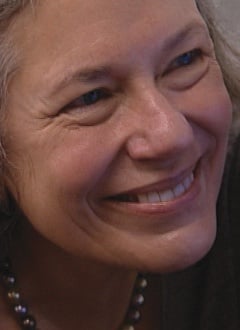
This week in the Writing Masters series, we are sharing a selection from Nancie Atwell’s classic resource Lessons That Change Writers that describes the importance of establishing an environment in which students always have ideas to write about. Nancie does this by creating multiple opportunities for students to gather their individual writing territories—the topics they might write about during the school year.
From Lessons That Change Writers: About Topics
One of my overarching goals as a teacher is that after the first day of writing workshop, no student will complain, “I don't know what to write about.” My job is to teach them how to discover and act on their intentions as writers, not give students my intentions or devote precious conferring time to trying to nudge a rudderless writer toward a topic.
This means the workshop environment needs to be a rich, fertile context for writers to identify ideas for writing. So I read aloud to them and we read together poetry, memoirs, short stories, essays, parodies, profiles, and book reviews relevant to students' experience. I demonstrate my own ideas and intentions. I structure and encourage peer writing conferences, so students can demonstrate their ideas for each other. I provide information about publication options, from the school literary magazines, to poetry and essay contests, guidelines for letters to the editor, short fiction competitions, places to submit book and music reviews, gifts of writing for people they love, and options for guest editorial columns in local papers. And, I stage frequent readings of cut-and-paste magazines of students’ finished writing. At every step I remind students: “You could do this.”
In addition to working to establish a vital environment, I extend explicit invitations to writers to name their ideas. Starting on the first day of school, students use topic mini-lessons as occasions for generating and recording different kinds of writing ideas they can explore in a range of genres.
I hope kids will leave the first day's workshop with too many places to begin, overwhelmed by a wealth of personal material.
For example, I launch the workshop by demonstrating my territories as a writer—my potential topics and purposes as a writer that might suit them and the genres—and asking students to begin to make a record of their own territories. I hope kids will leave the first day’s workshop with too many places to begin, overwhelmed by a wealth of personal material. I stress the personal in my own list of territories because this is where I’ll ask students to begin in September, with poems. The chances that kids will produce literature early on are seriously enhanced if they’re working in a genre that is manageable, compact, personally significant, and based on data they know well: in other words, their experiences, observations, and feelings. So poetry is where we start, and then I build on poetry’s powerful lessons about theme, diction, voice, specifics, and imagery across the rest of the school year.
Each student creates a writing handbook from a blank, 100-page spiral notebook. I instruct students to reserve the first fifteen pages of their handbooks (after three pages set aside for a table of contents) for capturing and recording ideas they come up with in response to the topic mini-lessons, as well as projects and subjects that occur to them independently. In my own writing life and those of my kids, I’ve witnessed the many ways that informal writing – notes, plans, lists, event single words – can aid thinking and memory. So I instruct students to create a territories section in the first fifteen pages of their handbooks, and to use it. One of my responsibilities is to invite specific entries throughout the year, in the form of mini-lessons aimed at helping kids find meaningful, worthy ideas for their writing in each genre I teach.
Topic lessons were cited again and again by writers as useful and important to their development. As my student Tyler put it, “My territories section of my writing handbook is like my security blanket. I never panic about ideas because I have all these plans. It makes me feel confident. But mostly it reminds me of how much I have to say.”
♦ ♦ ♦ ♦
 Nancie Atwell founded the Center for Teaching and Learning in 1990. Her classic In The Middle, now in its third edition, has inspired generations of teachers and shares her teaching journey and the practices she has developed. Nancie is the first ever recipient of the Global Teacher Prize, an annual $1 million award given to an exceptional teacher who has made an outstanding contribution to the profession.
Nancie Atwell founded the Center for Teaching and Learning in 1990. Her classic In The Middle, now in its third edition, has inspired generations of teachers and shares her teaching journey and the practices she has developed. Nancie is the first ever recipient of the Global Teacher Prize, an annual $1 million award given to an exceptional teacher who has made an outstanding contribution to the profession.
♦ ♦ ♦ ♦
Want more from the Writing Masters series? Click here to read Laura Robb's look at planning, the key to successful writing.
Click here to see the full Writing Masters Blog Series lineup, and, using the form below, sign up for email alerts when each new blog is posted.


